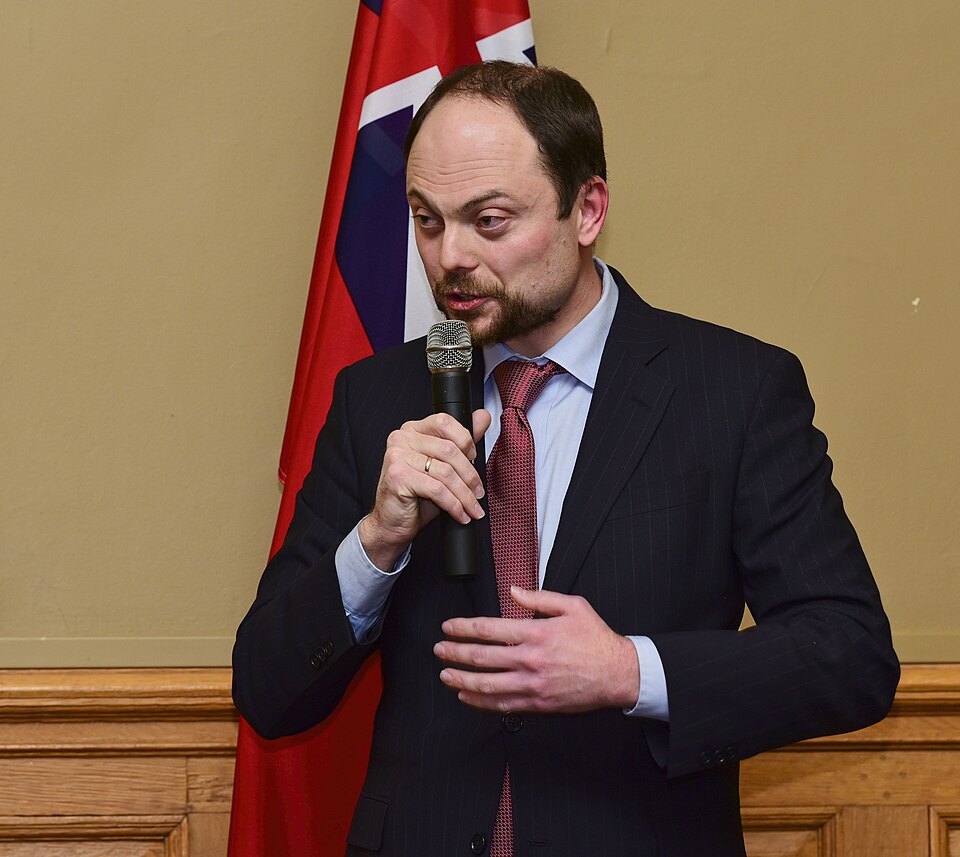War and controversy over ‘minor ethnic groups’ in Russia
The statements made by Vladimir Kara-Murza, one of the most influential members of the opposition to Putin in exile, on the large presence of non-Russian ethnic groups among Moscow's soldiers on the front line in Ukraine have sparked debate. Many have accused him of racism. But there are also those who recall the Caucasians fighting in the ranks of Kiev, bitterly observing that in this bloody conflict ‘everyone is looking for their enemies’.
Moscow (AsiaNews) - The statement by the most authoritative Russian opposition figure abroad, Vladimir Kara-Murza, sparked much debate when he responded to a question in the Paris Senate about the prominent share of soldiers at war and casualties belonging to citizens of Russia's national republics, explaining that ’ it is psychologically difficult for Russians to kill Ukrainians because we are one people.’
While Ukrainians have been angered by yet another “annexation” they do not want, many Russians from “minority” ethnic groups have been offended by their exclusion from the true community of Greater Russia, especially Caucasian supporters of ’independent Ichkeria.’
Many recalled how Kara-Murza was released in the large prisoner exchange, which brought back to Russia the killer Vadim Krasikov, who had been sentenced to life imprisonment in Germany after the assassination of Chechen commander Zelimkhan Khangošvili.
Now living as a ‘golden exile’ in the West, ‘he spreads propaganda with rhetoric that effectively justifies the Putin regime and the Russian electorate’, sums up the leader of the ‘Forza Unica’ movement for Ichkeria, Džambulat Sulejmanov. Kara-Murza himself then tried to justify himself by saying that the translation from French was incorrect and that he himself did not intend to assert the superiority of Russians over other nationalities, but was reporting ‘what he had heard from many colleagues’.
One of these is Anastasia Ševčenko, a humanitarian activist from Rostov in southern Russia and a political prisoner, the first to be accused of collaborating with ‘undesirable organisations’, a story she recounts in her book entitled ‘Undesirable’, published after her transfer to Vilnius in 2022, once she had served the three years she was sentenced to in a labour camp.
She herself admitted to having supported the thesis later put forward by Kara-Murza during a private meeting, in which they discussed why the majority of prisoners of war in Ukraine came from non-Russian ethnic regions, who volunteer in order to obtain the high salaries promised.
Responding to questions from journalists from Kavkaz.Realii, Shevchenko commented that ‘I would not have reported this opinion to the French parliament, I myself am a native of Buryatia and I do not think it appropriate to publicly point out those who find it easier to kill’.
At the same time, she admits that ‘the problem exists’ and that the proportion of ‘non-titular nationalities’ participating in this war is truly impressive, as shown, for example, in statistics released in Omsk in Siberia, where 15% of Kazakhs were sent to Ukraine, even though they make up only 4% of the region's population.
The reasons for this disproportion require in-depth reflection, argues the activist and journalist, ‘I often ask myself this question, and it is unwise to give overly specific public answers.’
The idea that non-Russians are more likely to kill Ukrainians ‘is certainly a racist argument, but this is not Kara-Murza's opinion; it is a situation that demonstrates the racist and fascist tendencies of the current Russian government.’
Moreover, the disproportion is also evident among political prisoners in Russia, where a high percentage are representatives of nationalities such as the Buryats, Bashkirs, Tatars and Caucasians, against whom ‘the degree of repression is much higher than in the rest of Russia.’
Anastasia also points out that many Caucasians are fighting in the Ukrainian ranks, and in this war ‘everyone is looking for their enemies, those in favour of Ichkeria are primarily opposed to the kadyrovtsy’, the Chechens loyal to the super-Putinist president Ramzan Kadyrov.
Working hard to assist prisoners, Shevchenko cannot help but notice ‘how many inter-ethnic conflicts are intertwined in the war between Russia and Ukraine’, where Georgians of various tendencies, South and North Koreans, Kalmyks against Azeris, even in the ‘Azov brigade’ of the Ukrainians, considered by the Russians to be the most racist, there are people from various backgrounds.
The activist concludes by calling on everyone ‘not to inflate this controversy too much’, as it could prove much more dangerous than it seems.
10/11/2021 13:10







.png)










